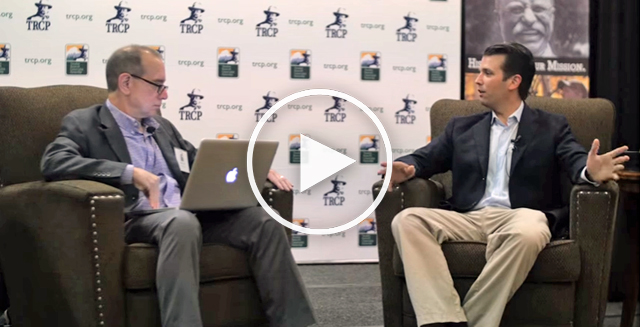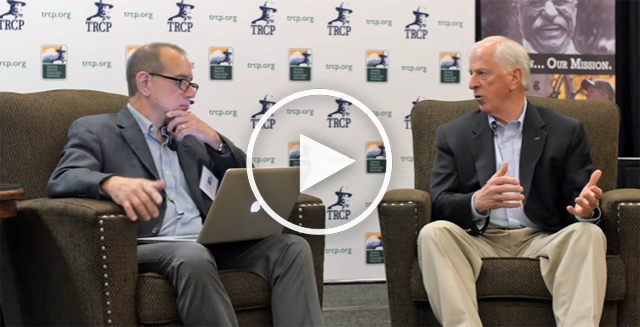News for Immediate Release
Jul. 13, 2016
Contact: Kristyn Brady, 617-501-6352, kbrady@trcp.org
Collaborators reveal the findings from a series of workshops on alternative solutions for federal fisheries
ORLANDO, Fla. — Today at ICAST, the world’s largest sportfishing trade show, recreational fishing and conservation group leaders revealed the preliminary findings from a series of collaborative workshops on alternative approaches to federal fisheries management.
The same broad coalition behind the 2014 landmark report on recreational fisheries managementworked closely with NOAA Fisheries, state game and fish managers, biologists, and researchers to identify ways to revise the current approach. Right now, federal fisheries managers set catch limits for both commercial and recreational sectors in a way that undervalues recreational fishermen and their $70-billion contribution to America’s economy. Innovative new solutions could give anglers more predictable seasons, boost conservation, and improve local economies in coastal communities and beyond.
“Although recreational anglers only catch two percent of the total fish harvested in U.S. waters, we create almost as many jobs as the commercial fishing industry”—455,000 jobs, in fact, said Mike Nussman, president and CEO of the American Sportfishing Association, the trade group that produces the ICAST conference and events. This year’s is their biggest show yet, with 13,000 attendees walking a 650,000-square-foot showroom packed with close to 600 exhibitors—a perfect backdrop for a discussion of new ideas.
The first workshop, facilitated by the Florida Fish and Wildlife Conservation Commission in Tampa this May, was geared towards identifying where existing federal fisheries management approaches fail to adequately accommodate the unique nature of recreational fisheries and specific ways to address these issues. The group discussed alternatives that are rooted in existing management practices currently used for fish and waterfowl at the state level, such as:
– Managing for a harvest rate, rather than a quota that must be tracked in real time.
– Spatial management, or allowing fishing out to certain depths or distances from shore, while making deeper waters off-limits to recreational harvest so brood stock can replenish.
– Looking at temporary and long-term allocation shifts between the recreational and commercial sectors, which might include shifting some species from recreational to commercial allocation and others from commercial to recreational.
– Developing new programs to gather better recreational harvest data or take advantage of existing voluntary harvest data.
– Reducing release mortality with new technology or better education on existing tools.
These initial conclusions were presented to congressional staff and representatives of the environmental community at a second workshop this June in Washington D.C. The group also discussed the potential legislative and regulatory changes needed to achieve these possible alternatives. Some solutions possibly require changes to the existing federal fisheries law, but others could be addressed through collaboration with NOAA Fisheries.
“When the Magnuson-Stevens Act was written 40 years ago, recreational fishing was an afterthought in the statute, and it is unlikely that this Congress will get around to discussing reauthorization,” a process that might allow for beneficial updates, said Jeff Angers, president of theCenter for Coastal Conservation. “But we’ve found friends at NOAA who are trying to help. There are things that can be done by an agency that’s willing to look at things a little differently.”
Russ Dunn, the national policy advisor on recreational fisheries at NOAA, for one, says that the agency is currently addressing each of the six recommendations from the coalition’s 2014 report. “It’s undeniable that NOAA Fisheries is more receptive to recreational fishing now than any other time in its history,” he said.
The Theodore Roosevelt Conservation Partnership and its sportfishing partners are committed to working within each region and with each fisheries council to determine ways to implement new innovative approaches to federal fisheries management, and they’re calling for collaborative effort from state partners and the public. “Using a commercial fishing paradigm to manage recreational fisheries is holding back our economy, and the nasty fights on issues like red snapper keep anglers from engaging on critical national conservation fights, like state takeover of our federal public lands,” said Whit Fosburgh, TRCP president and CEO. “With NOAA’s renewed commitment to recreational anglers, there’s a lot we can do.”
Inspired by the legacy of Theodore Roosevelt, the TRCP is a coalition of organizations and grassroots partners working together to preserve the traditions of hunting and fishing.






